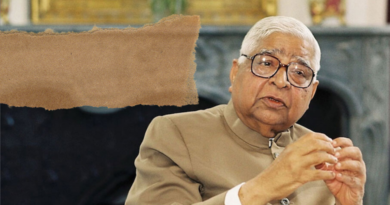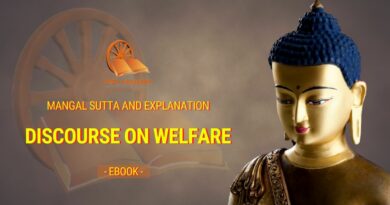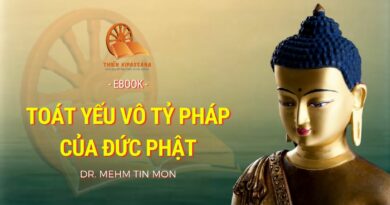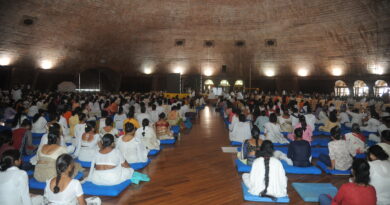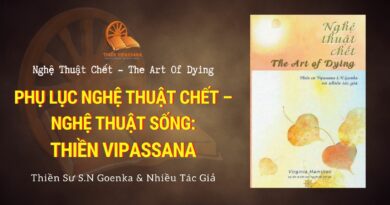Sayings of Sayagyi U Ba Khin
1) A balanced mind is necessary to balance the unbalanced mind of others.
2) Just as the light of a candle has the power to dispel darkness in a room, so also the light developed in one man can help dispel darkness in several others.
3) To imagine that good can be done by the means of evil is an illusion, a nightmare.
4) My approach is essentially practical, not theoretical.
Vipassana meditation is so subtle and delicate that the less you talk about it, the more you can obtain good results.
5) Dhamma eradicates suffering and gives happiness. Who gives this happiness? It is not the Buddha but the Dhamma, the knowledge of anicca within the body, which gives this happiness.
That is why you must meditate and be aware of anicca continually.
6) The more one is attached to self, the greater is the suffering.
7) Only those who take to meditation with good intentions can be assured of success.
With the development of the purity and the power of the mind backed by the insight into the ultimate truth of nature, one may be able to do a lot of things in the right direction for the benefit of mankind.
8 ) What is happiness? For all that science has achieved in the field of materialism, are the peoples of the world happy? They may find sensual pleasures off and on, but in their hearts of hearts, they are not happy when they realize what has happen gv 🌷 The last words of the Buddha just before he breathed his last and passed away into mahaparinibbāna were:
“Decay (or anicca) is inherent in all component things. Work out your own salvation with diligence.”
This is, in fact, the essence of all his teachings during the 45 years of his ministry.
If you will keep up the awareness of the anicca that is inherent in all component things, you are sure to reach the goal in the course of time.
9 )
” It is the body that is changing. The thought that knows that the rūpa (matter) is changing is the nāma (mind). When the rūpa changes and has gone, the nāma which knew about the changed-and-gone rūpa, also is changed and goes. Both rūpa and nāma are anicca . Keep this in your mind, be aware of it.
Focus your attention on the top of your head, and move down through the whole body, from the top of the head to the forehead and then the face, from the face to the neck, the neck to the shoulders, from the shoulders along to the hands.
Wherever the mind goes it may be like touching with a small torch and feeling the heat wherever the torch touches, wherever the mind goes.
Why?
Because there is burning and annihilation taking place inside; it is the innate nature of combustion of atomic units within. This is certainly present. Learn to be sensitive to it so that you can feel it. Try it with an attentive mind and you will know.
🌷 Once the meditation is practised and once one becomes aware and observes with Vipassana knowledge, the defilements, the samudaya akusala (arisen unwholesomeness) cannot remain much longer.
They have to leave gradually and when they are all gone, the person becomes controlled and stable, and able to live well.
🌷 How long will one have to work?
Until all the immeasurable, uncountable old akusala kamma (unwholesome actions) accumulated along one’s journey through the saṃsāra (cycle of rebirth) are eradicated by observing the nature of anicca .
Then one becomes sotāpanna (one who has reached the first stage of saintliness, has experienced nibbāna), and ariyapuggala (noble person). This cannot be achieved easily.
To reach the final nibbāna where all the saṅkhāras are eliminated is very far off, but wouldn’t you like to try and see for yourself the minor nibbāna? If it could be tasted only after death, these foreigners would never practise this meditation. They have tasted a bit, liked it and have kept coming back from near and far. They send their friends and acquaintances who also come from afar. Why is this? Because they have experienced the taste of Dhamma.
🌷 It is important that there is a Teacher to help students to have a taste of Dhamma.
But students have to work to experience the taste.
What is this taste called?
It is called the Dhamma rasa.
“Sabba rasaṃ dhamma rasaṃ jināti.”
Of all the tastes, the taste of Dhamma is the most noble, the best.
You have to try to work hard to get that taste. Just as the human monarch enjoys human pleasures, the devas (celestial beings) enjoy the deva pleasures and brahmās (higher celestial beings) enjoy brahmā pleasures; the noble ariyas (saintly persons) such as the Buddha and arahants can also enjoy the taste of the Dhamma that they have obtained.
You must try hard until you too can enjoy this taste, but please do not work to the extreme, without moderation. Try to work according to the schedule we have given, work at the right time, to the fullest, with great care and effort.
💐💐💐🙏🙏💐💐💐
(Vipassana newsletter. Jan’ 11)
http://www.vridhamma.org/
https://www.dhamma.org/en/courses/search

